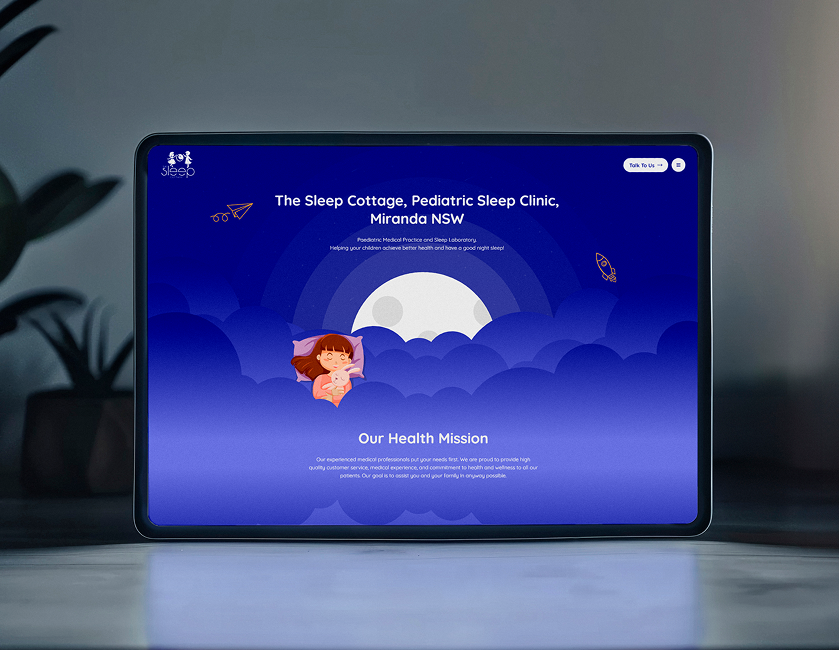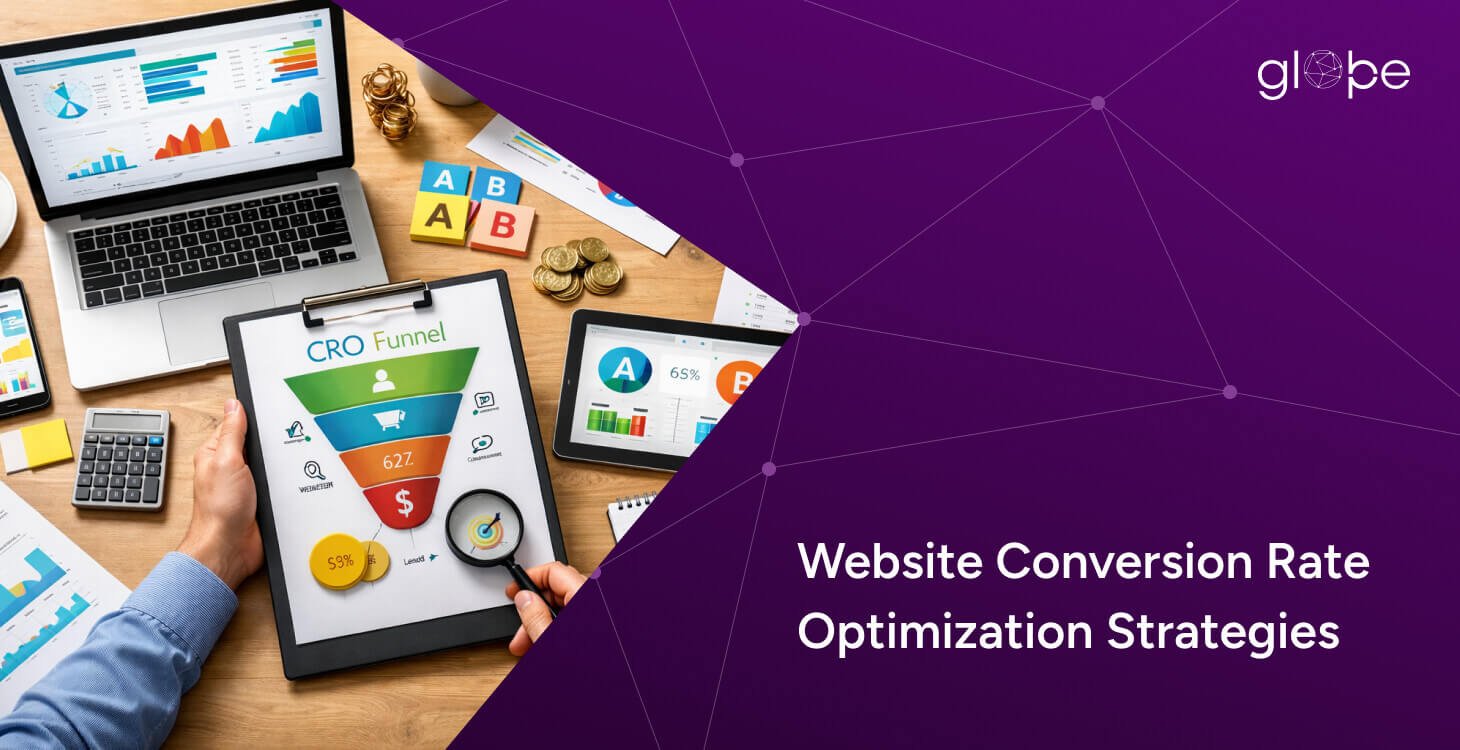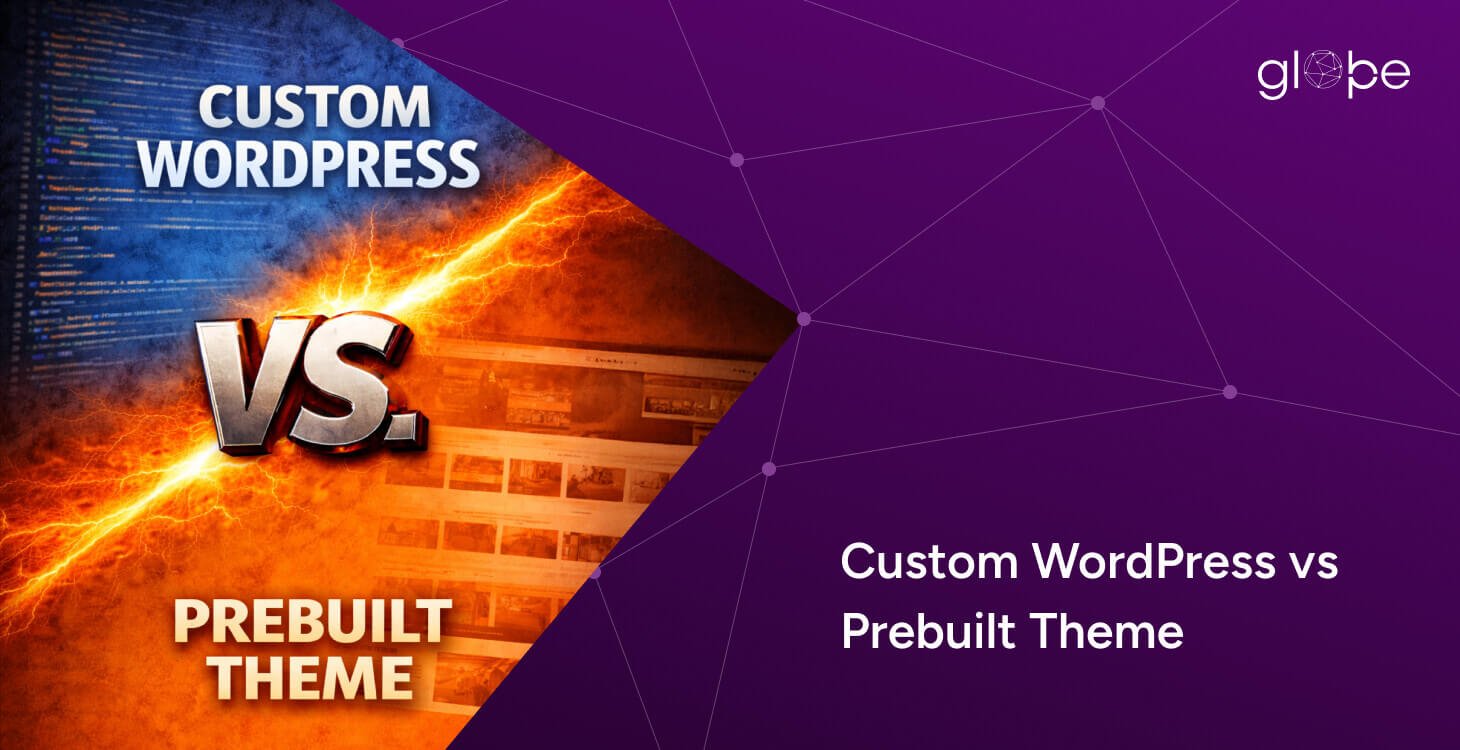
Hiring the right WordPress development company can significantly impact the success of your website and, ultimately, your business. A well developed website is more than just an online presence; it’s a platform to engage your audience, showcase your brand, and drive conversions. Choosing the right team to bring your vision to life ensures your website meets your goals efficiently and effectively.
WordPress has become a dominant force in web development, powering over 43.6% of all websites on the internet As of 2024. This open-source platform is trusted by small businesses, enterprises, and global brands alike for its flexibility, scalability, and extensive range of customization options. Whether you need a sleek portfolio, a robust e-commerce store, or a dynamic corporate site, WordPress offers the tools and functionality to make it happen.
Collaborating with experienced professionals WordPress development Agency not only saves time and effort but also ensures a website built on best practices. From clean coding and responsive design to enhanced security and search engine optimization (SEO), working with experts developers provides a seamless process and a final product that stands out. A trusted WordPress development company will also offer ongoing support to keep your website updated and performing optimally.
Define Your Project Requirements
Defining your project requirements is the foundation of a successful WordPress website. Start by clarifying the purpose of your website. Are you creating an e-commerce store to sell products, a blog to share your expertise, or a portfolio to showcase your work? Understanding your primary goal will guide all subsequent decisions.
Next, identify the essential features and functionalities your website needs to succeed. For an e-commerce site, this might include secure payment gateways, inventory management, and customer review sections. For a blog, SEO tools, social media integration, and an intuitive content management system are crucial. Additionally, ensure your website is responsive and performs well on mobile devices, as this is critical for user experience and search engine rankings.
Setting a realistic budget and timeline is another key step. Determine how much you are willing to invest in your website and establish a timeline that accounts for research, development, and testing phases. A clear budget helps you prioritize features and avoid unexpected costs, while a well-planned timeline ensures your project stays on track. By outlining your requirements early, you’ll create a roadmap that aligns with your business objectives and sets your project up for success.
Research and Shortlist Companies
Finding the right WordPress development company begins with thorough research and a strategic approach to shortlisting potential candidates. Start by exploring reputable sources where you can find trusted developers. Online directories such as Clutch, GoodFirms, or Upwork showcase verified companies with client reviews and ratings. Additionally, personal referrals from colleagues or industry peers can provide valuable insights into reliable service providers.
As you delve into your research, focus on key factors that help determine a company’s suitability. Expertise is paramount—look for developers with a proven track record in WordPress projects, particularly those that align with your requirements. Client reviews and testimonials on independent platforms can reveal insights about their professionalism, quality of work, and ability to meet deadlines. Also, pay close attention to their portfolio, which offers a glimpse into their creativity and technical capabilities.
Niche-specific experience can make a significant difference, especially if your project involves unique requirements or targets a specialized audience. A company familiar with your industry or type of project can better understand your needs and deliver tailored solutions. For instance, an e-commerce project benefits from a developer with expertise in WooCommerce, while a blog might require someone skilled in creating SEO-optimized themes.
Analyze Their Experience and Expertise
When hiring a WordPress development company, evaluating their experience and expertise is essential to ensure they can meet your project’s requirements. Start by assessing how long the company has been working with WordPress. Years of experience often translate into a deeper understanding of the platform, allowing the team to tackle complex challenges and deliver high-quality results.
Examine their proficiency in creating custom themes, plugins, and integrations. A skilled WordPress developer should be able to tailor solutions to your specific needs, enhancing both functionality and design. For instance, custom themes provide a unique and branded user experience, while well-crafted plugins and third-party integrations can expand your website’s capabilities.
Certifications and industry recognition are additional indicators of expertise. Check whether the company or its developers have certifications in WordPress or related technologies, such as PHP or JavaScript. Industry awards, case studies, or features in reputable publications can also demonstrate their credibility and leadership in the field.
Ask to see examples of their past work, focusing on projects similar to yours. A strong portfolio highlights their ability to handle projects of varying complexity and showcases their creativity and technical skill. Additionally, look for success stories that provide insight into how they’ve helped clients achieve their goals—whether through increased website performance, improved user experience, or enhanced SEO rankings.
Review Portfolio and References
A company’s portfolio and references offer valuable insights into their capabilities and track record. Reviewing these elements can help you gauge their creativity, technical proficiency, and ability to meet your specific needs.
Start by assessing their portfolio to understand the quality and diversity of their work. Look for creativity in design, functionality, and user experience. Does their work align with the vision you have for your website? Check if they’ve handled projects of similar scope and complexity to ensure they can meet your requirements. For example, if you’re planning an e-commerce website, look for examples of robust online stores with features like secure payment gateways and intuitive navigation.
In addition to their portfolio, ask for references and feedback from past clients. Speaking directly with their clients can provide firsthand insights into the company’s communication, professionalism, and ability to meet deadlines. Ask about the client's overall satisfaction with the project outcome and whether the company provided adequate support during and after the development phase.
Ensure the company has experience handling projects with challenges similar to yours. Whether it’s integrating unique features, optimizing site performance, or adhering to tight deadlines, their experience with comparable scenarios will be instrumental in delivering a successful website.
Assess Communication and Collaboration
Clear communication and effective collaboration are critical for a successful partnership with a WordPress development company. Ensuring your ideas are understood and your goals are met requires seamless interaction throughout the project.
Begin by evaluating the company’s communication channels. Do they offer multiple ways to stay connected, such as email, phone calls, video meetings, or instant messaging platforms? Clear and consistent communication ensures that updates, feedback, and questions are addressed promptly, avoiding misunderstandings and delays.
Responsiveness and transparency are key indicators of a reliable development partner. Assess how quickly they reply to inquiries and how thoroughly they address your concerns. A professional team should be proactive in keeping you informed about project progress, challenges, and potential solutions. During initial discussions, take note of their willingness to explain technical aspects in a way you can understand, as this reflects their commitment to collaboration.
Additionally, inquire about the tools they use for project management and updates. Popular platforms like Trello, Asana, or Jira provide structured ways to track progress, assign tasks, and manage deadlines. These tools help ensure that you’re always aware of the project's status and can provide feedback as needed. Regular status reports and scheduled check-ins further enhance collaboration and keep everyone aligned.
Check Their Technical Capabilities
A WordPress development company’s technical capabilities are the backbone of a successful website. Ensuring the team has the skills and expertise to handle your project’s needs is crucial for creating a high-performing and future-proof website.
Expertise in Responsive Design, Speed Optimization, and SEO Best Practices
In today’s mobile-driven world, responsive design is non-negotiable. The development company should have a proven track record of building websites that adapt seamlessly to various devices and screen sizes. Additionally, speed optimization is critical for both user experience and search engine rankings. A skilled team will implement best practices such as minimizing file sizes, optimizing images, and leveraging caching techniques to ensure your site loads quickly. Moreover, their knowledge of SEO best practices is essential for improving your site’s visibility, ensuring proper use of meta tags, clean URLs, and structured data.
Knowledge of Integrations with Third-Party Tools and APIs
Modern websites often rely on third-party tools and APIs to enhance functionality. Whether it’s integrating payment gateways for e-commerce, marketing automation tools, or CRM systems, the company should demonstrate expertise in seamless integrations. Their ability to customize these tools to fit your unique requirements ensures your website operates efficiently and aligns with your business processes.
Ability to Offer Post-Launch Support and Maintenance
A well-built website requires ongoing maintenance to remain secure, functional, and up to date. Ensure the company offers post-launch support services, such as troubleshooting, regular updates, and feature enhancements. A dedicated team for maintenance ensures that your site remains aligned with evolving trends and continues to deliver value to your audience. Additionally, verify if they provide comprehensive documentation or training to help you manage your website independently, if needed.
Verify Technical and Coding Skills
The technical and coding skills of a WordPress development company are critical for creating a website that is both functional and future-proof. Verifying their expertise ensures your project is built on a solid foundation, free from technical debt and vulnerabilities.
Knowledge of Clean, Efficient, and Scalable Coding Practices
Clean and efficient coding is essential for a website that performs well and remains easy to maintain. A professional development team should follow industry best practices, such as writing modular and reusable code. Scalable coding allows your website to grow alongside your business, accommodating new features or increased traffic without requiring a complete overhaul.
Proficiency in HTML, CSS, JavaScript, and PHP
WordPress is built on a foundation of HTML, CSS, JavaScript, and PHP, making these skills essential for any development team. Proficiency in these programming languages enables developers to customize themes, create advanced functionalities, and optimize your website for performance. Additionally, expertise in modern JavaScript frameworks or libraries, such as React or Vue.js, can enhance interactivity and user experience.
Ability to Implement Security Measures to Protect the Site
Security is a top priority for any website, especially for businesses handling sensitive customer data or e-commerce transactions. A skilled development team should implement robust security measures, including regular updates to the WordPress core, themes, and plugins. They should also configure strong authentication protocols, enable SSL encryption, and follow secure coding standards to protect your site from vulnerabilities and potential attacks.
SEO Optimization
Search engine optimization (SEO) is a critical component of any successful WordPress website. When selecting a WordPress development company, it’s essential to assess their expertise in SEO to ensure your site is built to rank well and attract organic traffic.
Understanding of WordPress-Specific SEO Tools
A proficient WordPress development team should be familiar with popular SEO plugins, such as Yoast SEO, Rank Math, or All in One SEO Pack. These tools help optimize content, meta tags, and XML sitemaps, ensuring that your website complies with SEO best practices. Developers should also be adept at configuring these plugins for maximum effectiveness, including keyword targeting, readability analysis, and schema markup implementation.
Expertise in Optimizing Site Speed, Mobile Responsiveness, and Metadata
Site speed and mobile responsiveness are crucial factors for both user experience and search engine rankings. Developers should implement strategies like compressing images, leveraging browser caching, and minimizing CSS and JavaScript files to enhance loading speeds. Ensuring your website is mobile-friendly is equally vital, as search engines prioritize mobile-first indexing. Additionally, developers must optimize metadata, including title tags, meta descriptions, and alt text, to improve click-through rates and accessibility.
Knowledge of Google’s Core Web Vitals
Google’s Core Web Vitals—metrics that measure loading performance, interactivity, and visual stability—play a significant role in determining a website’s ranking. A skilled WordPress development company should be well-versed in these metrics and capable of making necessary adjustments to meet Google’s standards. This includes optimizing server response times, reducing layout shifts, and improving first input delay for a smooth user experience.
Review Their Pricing Model
Understanding the pricing model of a WordPress development company is essential to ensure you get value for your investment without unpleasant surprises. Analyzing how they structure their costs and deliverables helps you make an informed decision that aligns with your budget and goals.
Types of Pricing Models: Hourly, Fixed Rate, or Retainer
WordPress development companies typically offer different pricing structures to suit varying project needs. An hourly model works well for smaller projects or ongoing updates, as you pay for the exact amount of work done. A fixed-rate model is ideal for clearly defined projects with a predetermined scope, providing cost predictability. On the other hand, a retainer model is suitable for long-term collaborations, offering continuous support and development for a monthly or periodic fee. Consider which model aligns best with your project’s scale and flexibility requirements.
Hidden Costs to Watch Out For
Transparency in pricing is crucial. Ask for a detailed cost breakdown in the proposal to identify potential hidden costs. These may include additional charges for premium plugins, extended support, or revisions beyond the agreed scope. Clarify whether hosting, domain registration, or security measures are included in the quote. Avoid surprises by ensuring all costs are explicitly outlined in the contract.
How to Compare Value for Money Among Different Companies
When evaluating pricing from multiple companies, don’t focus solely on the lowest bid. Compare what each provider offers for the cost. A slightly higher price may include better features, faster turnaround times, or superior support. Assess the quality of their past work, the expertise of their team, and client testimonials to determine if the price reflects the value delivered. Remember, a well-built website is a long-term investment, so prioritize quality over cutting corners.
Read Client Reviews and Testimonials
Client reviews and testimonials are invaluable when selecting a WordPress development company. They provide insights into the company’s reliability, professionalism, and ability to deliver on its promises. Taking the time to review feedback from past clients can help you gauge whether the company is the right fit for your project.
Importance of Genuine Client Feedback
Genuine client feedback offers a realistic view of the company’s strengths and potential areas for improvement. Positive reviews highlight what the company excels at, such as timely delivery, effective communication, or innovative solutions. Meanwhile, critical feedback can provide warnings about recurring issues, like missed deadlines or inadequate support. Authentic testimonials from real clients are one of the best ways to assess the quality of service.
How to Spot Fake Reviews
Unfortunately, not all reviews are genuine. To identify fake reviews, look for overly generic or excessively positive language that lacks specific details. Fake reviews may also include repetitive phrases or vague descriptions of services. Be cautious if you notice an influx of reviews posted within a short period, as it could indicate manipulation. Cross-check reviews across multiple platforms for consistency, and prioritize feedback that includes detailed descriptions and client names.
Platforms to Check for Reviews
Reputable review platforms are excellent resources for finding honest client testimonials. Topdevelopers.co, Clutch and Trustpilot provide verified reviews and ratings for service providers. Google My Business is another reliable source, as it offers location-specific feedback and insights. Additionally, check the company’s social media profiles or website for client testimonials, ensuring they align with reviews found on independent platforms.
Assess Support and Maintenance Services
A website requires ongoing support and maintenance to remain functional, secure, and up-to-date. When selecting a WordPress development company, evaluating their post-launch support and maintenance services is crucial for long-term success.
Availability of Post-Launch Support
Post-launch support ensures that any issues arising after the website goes live are promptly addressed. Reliable companies offer services such as bug fixes, performance optimizations, and updates to plugins or themes. Ask if their support team is readily available to troubleshoot unexpected problems, ensuring minimal downtime and a seamless user experience.
Regular Maintenance Options and Monitoring Services
Regular maintenance keeps your website running smoothly and protects it from potential security threats. A competent development company will offer periodic updates to the WordPress core, themes, and plugins to maintain compatibility and stability. They may also provide monitoring services to track site performance, detect vulnerabilities, and address issues proactively. These services help ensure that your website continues to perform optimally as your business grows.
Ensure They Have a Dedicated Team for Troubleshooting
A dedicated support team is an invaluable resource for handling technical challenges. Verify whether the company has a specialized team that focuses exclusively on troubleshooting and maintenance tasks. Their ability to quickly diagnose and resolve issues is essential for minimizing disruptions. Additionally, check if their support is available via multiple channels, such as email, chat, or phone, for added convenience.
Request a Detailed Proposal
Requesting a detailed proposal is a vital step in hiring a WordPress development company. A well-structured proposal outlines the scope of the project, provides clarity on timelines and costs, and ensures both parties are aligned before work begins.
What to Expect in a Proposal
A comprehensive proposal should include a clear scope of work that details the tasks and deliverables for your project. It should outline the key milestones and a realistic timeline for completion. Additionally, a transparent cost breakdown is essential to understand how your budget will be allocated, including charges for development, plugins, third-party integrations, and post-launch support. Look for specifics rather than vague estimates, as this reflects professionalism and attention to detail.
Importance of Understanding Their Process and Deliverables
The proposal should also explain the company’s development process, from initial discovery and design to coding, testing, and launch. This insight allows you to evaluate whether their approach aligns with your project needs. Ensure that the deliverables are well-defined, so you know exactly what to expect at each stage. For example, they might include wireframes, mockups, and testing reports as part of the process.
Ensure a Clear Contract with Terms and Conditions
Before signing off on a proposal, ensure that it includes a clear contract with terms and conditions. This document should specify payment terms, project timelines, and protocols for changes in scope or delays. It should also address intellectual property rights, ensuring you own the website’s design and code upon completion. A strong contract protects both parties and sets clear expectations for the partnership.
Test with a Small Project (Optional)
Before committing to a full-scale project, testing a WordPress development company with a small trial project can help you assess their capabilities and suitability for your needs. This optional step provides valuable insights into how the team works and ensures you make an informed decision.
Benefits of a Trial Project
A trial project allows you to evaluate the company’s expertise without significant financial or time investment. It offers a practical way to observe how they approach real-world tasks, such as creating a custom plugin, designing a landing page, or optimizing a specific feature of your website. This step can validate their skills, attention to detail, and ability to deliver on promises, providing confidence before moving forward with a larger engagement.
Things to Monitor During the Trial
During the trial, focus on several key aspects to gauge their performance:
- Timeliness: Assess whether the team adheres to the agreed timeline and meets deadlines. Punctuality reflects their professionalism and commitment to the project.
- Quality of Work: Evaluate the output’s accuracy, functionality, and alignment with your requirements. High-quality deliverables indicate their technical proficiency and attention to detail.
- Problem-Solving Skills: Observe how they handle challenges or unexpected issues during the trial. A capable team will proactively suggest solutions and demonstrate adaptability to overcome obstacles.
Conclusion
Choosing the right WordPress development company is a critical decision that can significantly impact the success of your website and, ultimately, your business. By carefully considering essential factors like project requirements, technical expertise, portfolio, pricing, and support services, you can make an informed choice that aligns with your goals.
Take the time to research and evaluate potential companies, ensuring they have the experience, skills, and communication practices necessary to deliver a high-quality website. Don’t hesitate to ask questions, review client feedback, and even test their capabilities with a small project. A well-thought-out decision at this stage will save time, money, and stress down the road.
Remember, the right partner is more than just a service provider—they’re an extension of your team, helping you bring your vision to life. Choose a WordPress development company that understands your goals, values collaboration, and is committed to delivering a website that supports your long-term success.




